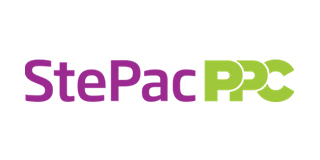

StepacPPC
Packaging
Development and Validation of Innovative Packaging Solutions for Enhanced Mushroom Freshness
StePacPPC developed packaging solutions that extend mushroom freshness by up to 18 days using humidity control and optimized gas levels to reduce spoilage

Mushroom cultivation is an intensive agricultural process that requires precise growing conditions. Each stage demands careful attention to maximize profit and minimize aging and decay. Most interestingly, mushrooms continue to develop after they are harvested, making them highly susceptible to dehydration, bacterial contamination, and quality degradation. Innovative packaging that can preserve the freshness of mushrooms from the moment they are harvested until they arrive at the consumer home is therefore a necessity.
StePacPPC, a global leader in post-harvest shelf-life extension technologies, has undertaken the challenge to develop advanced packaging solutions to extend the shelf life of fresh mushrooms.
StePacPPC embarked on a multi-stage project to develop and optimize packaging for various mushroom species at its Post-harvest and Packaging Laboratory. Spearheading the project was Harel Nagan, the Postharvest Laboratory Manager. Part of the research was conducted in the framework of Harel’s M.Sc. Agriculture at the Faculty of Agriculture, Food and Environment, The Hebrew University of Jerusalem (HUJI) under the supervision of Prof. Yitzhak Hadar of HUJI and Dr Ofer Danay of MIGAL Galilee Research Institute.
3-Phase Research for Mushroom Packaging Innovation
The research project focused specifically on developing packaging for different types of mushrooms and was conducted in three distinct phases:
Phase 1: Optimizing Humidity Control
Controlling the rate of moisture release and gas exchange through packaging material is crucial. The initial phase focused on analyzing the permeability of various polymers, developed by StePacPPC, with different Water Vapor Transmission Rate (WVTR). The research revealed that under varied storage conditions, the high respiration rate of mushrooms leads to significant production of water vapor. This can result in extensive condensation on the inner surface of the packaging, potentially increasing bacterial decay. Furthermore, it was observed that brown color spots develop, and the fungal aging processes accelerate.
By matching the WVTR to the specific mushroom variety and strain, the condensation on the packaging surface could be reduced. This, in turn, significantly diminishes the risk of bacterial growth and discoloration, common problems that plague mushroom quality.
Phase 2: Modulating Gas Composition
Creating an internal modified atmosphere within the package that slows down aging and spoilage is another critical element. The second phase involved characterizing the composition of the respiration gases, particularly the levels of oxygen and carbon dioxide within the sealed package and their impact on shelf-life extension.
The research revealed that controlling and lowering oxygen levels and increasing carbon dioxide concentrations effectively delayed browning, slowed down stem elongation, and inhibited bacteria growth. This translated to a significant extension of shelf-life of the mushrooms.
Phase 3: Commercial Trials
In the final stage of the project, commercial trials with growers and distributors were conducted worldwide, utilizing full supply chains to refine packaging specifications and identify optimal storage and transport temperatures. At the same time, academic research allowed for result prediction, expanding to real-world conditions and revealing the need for adjustments and refinements in packaging characteristics.
StePacPPC’s Mushroom Packaging Product Line
StePacPPC has developed a deep understanding of the factors that affect mushroom quality and shelf life. This knowledge is translated into a wide range of innovative packaging solutions designed to ensure that consumers have access to fresh, high-quality mushrooms, year-round.
The results:
- StePacPPC’s Xtend® bulk liners preserve the quality of Oyster mushrooms in cold storage for 15 days at 3°C.
- Portobello mushrooms can remain fresh for up to 18 days in Xtend bulk liners.
In a separate project, together with Windham Packaging, StePacPPC is developing flow pack solutions for sliced white mushrooms that can maintain their freshness for 18 days.
These solutions not only minimize food waste but also improve product quality, leading to increased consumer satisfaction and loyalty.
Academic Recognition and Market Value
The research conducted at StePacPPC has garnered significant recognition within the scientific community:
“The research has led to a better understanding of the factors that limit mushroom quality during shelf life, and how advanced packaging solutions can help address them. This will hopefully translate into better quality for the consumer and less waste in the mushroom supply chain.” Dr. Danay at MIGAL Galilee Research Institute.
This sentiment underscores the practical value of the research findings. By extending shelf life and minimizing losses, StePacPPC’s innovative packaging solutions are not only improving product quality for consumers, but also generating significant economic benefits for growers and distributors throughout the supply chain.
In Summary
StePacPPC’s innovative approach to fresh mushroom packaging has revolutionized the industry, addressing critical challenges in storage and distribution. By extending shelf life from a few days to over two weeks, these solutions significantly reduce food waste and improve inventory management. Xtend bags not only maintain mushroom quality and freshness, but also enhance consumer satisfaction and producer profitability.

















